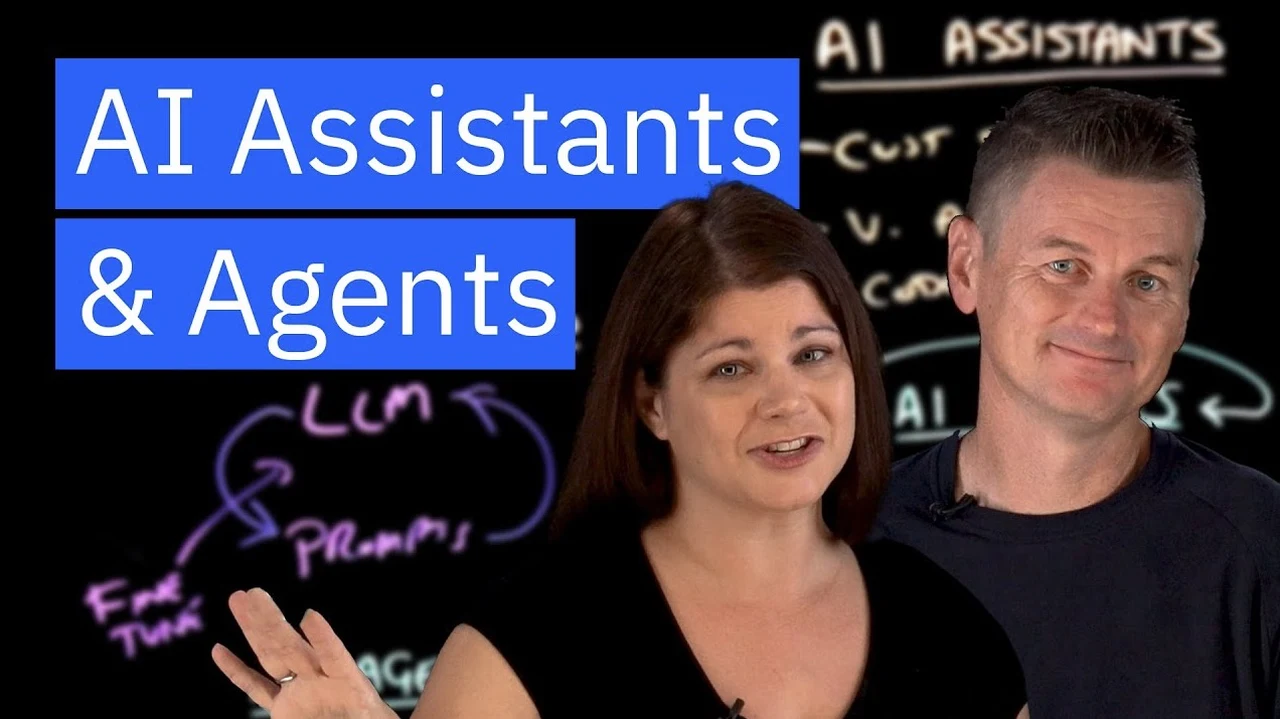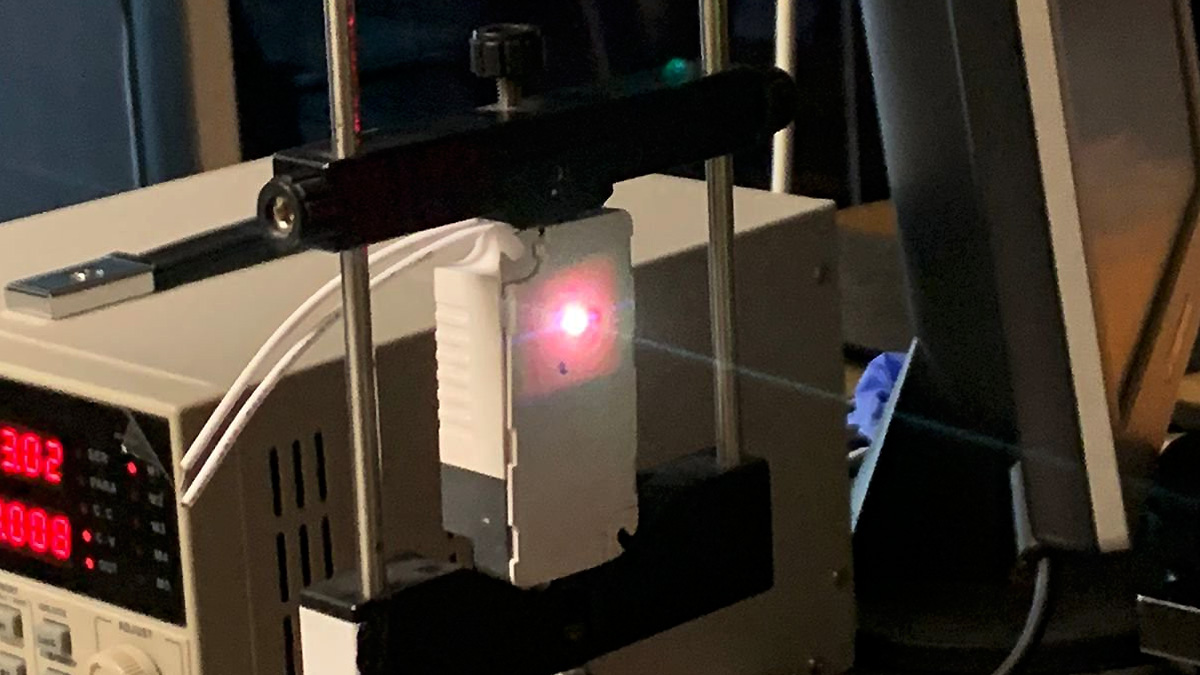
If you are interested in learning more about the differences between AI Assistants and AI Agents, you’ll be pleased to know that IBM has released a quick overview guide to help. As artificial intelligence continues to transform the workplace, distinguishing between AI Assistants and AI Agents becomes essential. Both use advanced AI to perform tasks, yet they differ significantly in how they operate and are applied.
Understanding these differences is and individuals looking to use AI technology effectively. Imagine a world where your digital assistant not only responds to your requests but also anticipates your needs, seamlessly managing tasks you didn’t even realize required attention. As AI continues to transform the workplace, understanding the nuances between AI Assistants vs AI Agents becomes increasingly important.
These two types of AI technologies, while often used interchangeably, serve distinct roles that can significantly impact how we approach tasks and solve problems. Whether you’re a business looking to streamline operations or an individual seeking to improve personal productivity, grasping these differences is key to unlocking AI’s full potential. AI Assistants, like Siri and Alexa, have become household names, known for their ability to and manage routine tasks.
They excel in processing natural language, making them accessible and user-friendly. On the other hand, AI Agents go further by operating autonomously, capable of initiating tasks and making decisions with minimal human intervention. This proactive nature allows them to handle complex, high-level challenges, offering solutions that extend beyond the capabilities of traditional AI Assistants.
As we provide more insights into the roles and applications of these technologies, we’ll explore how they can be used to not only improve efficiency but also foster innovation in various domains. AI Assistants are reactive, task-oriented systems that respond to user prompts, excelling in natural language processing for tasks like organizing information and answering questions. AI Agents operate autonomously, initiating tasks and making independent decisions using external data and tools, ideal for strategic roles such as automated trading and network monitoring.
The primary distinction between AI Assistants and AI Agents is their operational approach, with Assistants requiring user input and Agents thriving on independent decision-making. Both AI Assistants and AI Agents face challenges like brittleness and feedback loops, but advancements in model reasoning are improving their reliability and effectiveness. Future developments may see AI Assistants and AI Agents working together, combining strengths to enhance efficiency and innovation across various domains.
AI Assistants are designed to respond to user prompts, making them reactive and task-oriented. Built on large language models (LLMs), they excel in understanding and processing natural language. This capability allows them to organize information, answer questions, and generate content efficiently.
Examples of AI Assistants include: Siri (Apple) Alexa (Amazon) ChatGPT (OpenAI) Google Assistant These systems are tailored to assist with routine tasks and can be customized for specific roles through prompt tuning and fine-tuning. For instance, AI Assistants can be programmed to automate customer service, handling inquiries swiftly and accurately. They can also aid in content creation, data analysis, and scheduling, making them valuable tools in various professional settings.
The of AI Assistants lies in their ability to process and respond to natural language inputs, making them highly accessible to users without technical expertise. They can quickly sift through vast amounts of information to provide relevant answers or complete requested tasks, significantly enhancing productivity in many areas. AI Agents operate with a degree of autonomy that enables them to initiate tasks and achieve goals independently.
While they may start with an initial prompt, they do not rely on constant user input. By using external data and tools, along with persistent memory, AI Agents make informed decisions. This autonomous nature makes AI Agents ideal for: Automated trading in financial markets Network monitoring and cybersecurity Supply chain optimization Predictive maintenance in industrial settings The allows AI Agents to manage multiple tasks simultaneously, providing a significant edge in environments that require proactive problem-solving.
They can analyze trends, predict outcomes, and take action based on predefined parameters without human intervention. For example, in automated trading, an AI Agent can monitor market conditions, analyze historical data, and execute trades based on its algorithms and risk assessment. This level of autonomy and decision-making capability sets AI Agents apart from their more reactive counterparts.
Here are more guides from our previous articles and guides related to AI Assistants that you may find helpful. The key difference between AI Assistants and AI Agents lies in their operational approach. AI Assistants are suited for routine tasks where ongoing user input is necessary.
They excel in: Customer service interactions Code generation and debugging Content creation and editing Personal productivity assistance Conversely, AI Agents thrive in scenarios that demand the integration of external data sources and independent decision-making, making them perfect for complex, multi-layered operations such as: Autonomous vehicles navigation Smart home system management Large-scale data analysis and pattern recognition Automated workflow optimization in industries Despite their strengths, both AI Assistants and AI Agents face limitations. Issues like brittleness and feedback loops can impact their performance. AI Agents, in particular, may require substantial computational resources to operate effectively.
Some common challenges include: Making sure data privacy and security Maintaining ethical decision-making processes Overcoming biases in training data Achieving seamless integration with existing systems However, ongoing advancements in model reasoning are progressively enhancing their reliability and effectiveness. Researchers are developing more sophisticated algorithms that can handle ambiguity and uncertainty better, leading to more robust and adaptable AI systems. Looking forward, there is significant potential for AI Assistants and AI Agents to work together, combining their strengths to tackle both simple and complex tasks.
This synergy could lead to comprehensive solutions across various domains, from healthcare to education to environmental management. As AI technology continues to advance, AI Agents are expected to gain more autonomy and problem-solving capabilities, further expanding their role in the future of work. We may see: AI Agents that can explain their decision-making processes more clearly Improved natural language understanding, allowing for more nuanced interactions Greater integration of AI systems with Internet of Things (IoT) devices Enhanced ability to learn and adapt to new situations in real-time As these technologies evolve, their integration into everyday processes is likely to become more seamless, driving efficiency and innovation across industries.
The will become increasingly important, with AI systems augmenting human capabilities rather than replacing them entirely. In conclusion, understanding the distinctions and capabilities of AI Assistants and AI Agents is crucial for using these technologies effectively. As they continue to develop and integrate, they promise to reshape how we work, interact, and solve problems in the digital age.
Media Credit:.














